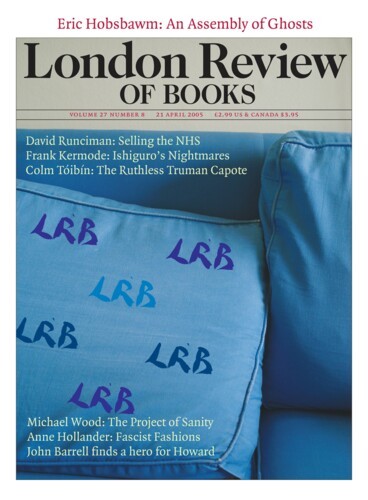An Attic Full of Sermons: Marilynne Robinson
Tessa Hadley, 21 April 2005
“The most extraordinary and best of the stories in Gilead are to do with the quarrels Ames remembers between his father and grandfather; these are the hub of the novel’s arguments about the transforming power of religious faith. The grandfather was a passionate abolitionist, ‘afire with old certainties’, who fought alongside John Brown; he is another one of those disturbing innocents, impossible to live with and yet leaving the mark of his intensity on everyone he touches. When he was 16 he had a vision of the Lord in irons, holding out his arms to him, and knew he had to go to Kansas, where they were voting whether to enter the Union slave or free; he pitied his son, who was temporising and reasonable: ‘That’s just what kills my heart . . . That the Lord never came to you. That the seraphim never touched a coal to your lips.’”




